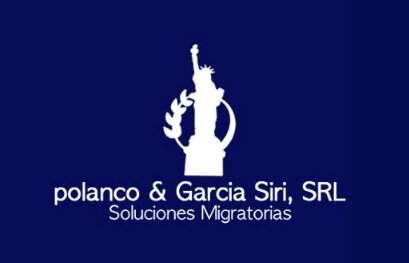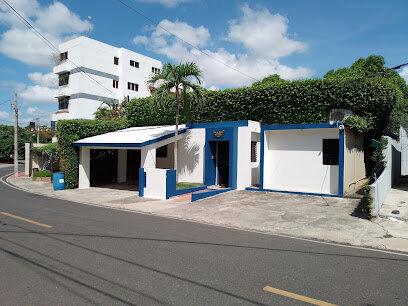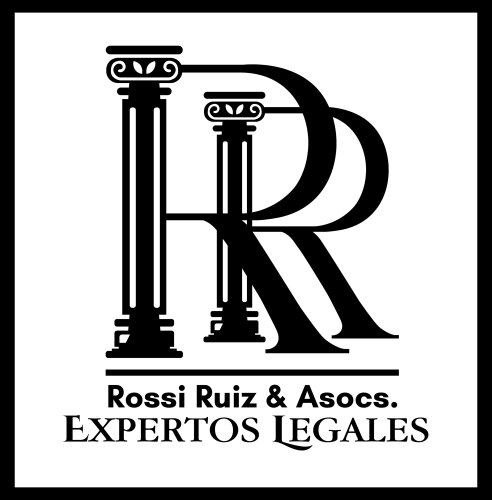Best State, Local, and Municipal Law Lawyers in Dominican Republic
Share your needs with us, get contacted by law firms.
Free. Takes 2 min.
Or refine your search by selecting a city:
List of the best lawyers in Dominican Republic
About State, Local, and Municipal Law in Dominican Republic
State, Local, and Municipal Law in the Dominican Republic governs how public authorities operate within their respective jurisdictions, from the national level down to individual municipalities. This legal field addresses the administration of government duties, the management of public resources, and the execution of laws that affect local communities. Laws at these levels are crucial for maintaining order, ensuring public safety, and facilitating daily governance. The interpretations and applications of these laws help ensure that government functions are carried out legally and efficiently.
Why You May Need a Lawyer
Individuals may require legal assistance in State, Local, and Municipal Law for various reasons. Common situations include: navigating local regulations for business operations, resolving disputes involving municipal ordinances, addressing property zoning issues, and accessing public services. Legal expertise is often necessary to interpret complex legislation and advocate on behalf of individuals or businesses when disputes arise with government entities.
Local Laws Overview
In the Dominican Republic, local laws can vary significantly between different municipalities. Key aspects include zoning regulations, which dictate land use within a municipality; local tax ordinances, which determine how businesses and properties are taxed; and public health mandates, which regulate environmental and health standards. Another critical area is municipal governance laws, which outline the powers and responsibilities of local government officials and institutions. Understanding these laws is essential for compliant and successful engagement with local authorities.
Frequently Asked Questions
What is the role of municipal governments in the Dominican Republic?
Municipal governments are responsible for regulating and managing services such as water supply, waste management, urban planning, and public transport within their territories.
How do I address a dispute with a local government entity?
If you have a dispute with a local government, you should first attempt to resolve the issue through official communication and negotiation. If this fails, consulting with a lawyer experienced in municipal law can help you understand your legal options.
What are zoning laws?
Zoning laws determine how land within certain areas can be used, including restrictions on commercial, residential, industrial, and agricultural activities. Compliance with these laws is crucial for property development.
Do I need a permit for home renovations?
Yes, often, obtaining a local government permit is necessary for significant home renovations, especially if they affect the exterior structure, involve demolition, or change the use of the building.
How can I challenge a local ordinance?
To challenge a local ordinance, you would typically need to file a legal petition or lawsuit showing that the ordinance is unconstitutional, breaches superior laws, or infringes on rights. Legal advice is critical in such cases.
What should I do if I encounter corruption at the municipal level?
If you encounter corruption, it's advisable to document your experiences carefully and report them to relevant authorities, such as the government's anti-corruption office. Consulting a lawyer for guidance is also beneficial.
How are municipal budgets determined?
Municipal budgets in the Dominican Republic are determined by local government councils based on expected revenues and expenditures. These budgets must adhere to legal requirements for transparency and public reporting.
What recourse do I have if a local government fails to provide a public service?
If a local government fails to provide an obligated public service, you can first file a formal complaint with the relevant agency. If this does not resolve the issue, legal action might be necessary.
Can local laws override national laws?
No, local laws in the Dominican Republic cannot override national laws. Municipal ordinances must comply with national legislation and constitutional provisions.
Are there specific environmental regulations local to each municipality?
Yes, municipalities may have specific environmental regulations addressing local issues like waste management, pollution, and conservation efforts, which must align with national standards.
Additional Resources
For further information or assistance, consider reaching out to institutions such as the Ministry of Public Administration, the Dominican Federation of Municipalities (FEDOMU), or legal aid organizations focused on public law. These entities provide valuable guidance on navigating state, local, and municipal laws.
Next Steps
If you need legal assistance in State, Local, and Municipal Law, begin by consulting a qualified lawyer specialized in this field. Gather all pertinent documents and details relating to your issue. It is advisable to schedule an initial consultation to discuss your situation, understand your legal position, and plan an appropriate course of action. Engaging with professional legal support can provide the clarity and representation required to address your legal concerns effectively.
Lawzana helps you find the best lawyers and law firms in Dominican Republic through a curated and pre-screened list of qualified legal professionals. Our platform offers rankings and detailed profiles of attorneys and law firms, allowing you to compare based on practice areas, including State, Local, and Municipal Law, experience, and client feedback.
Each profile includes a description of the firm's areas of practice, client reviews, team members and partners, year of establishment, spoken languages, office locations, contact information, social media presence, and any published articles or resources. Most firms on our platform speak English and are experienced in both local and international legal matters.
Get a quote from top-rated law firms in Dominican Republic — quickly, securely, and without unnecessary hassle.
Disclaimer:
The information provided on this page is for general informational purposes only and does not constitute legal advice. While we strive to ensure the accuracy and relevance of the content, legal information may change over time, and interpretations of the law can vary. You should always consult with a qualified legal professional for advice specific to your situation.
We disclaim all liability for actions taken or not taken based on the content of this page. If you believe any information is incorrect or outdated, please contact us, and we will review and update it where appropriate.
Browse state, local, and municipal law law firms by city in Dominican Republic
Refine your search by selecting a city.
















